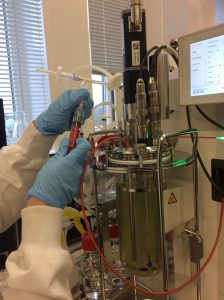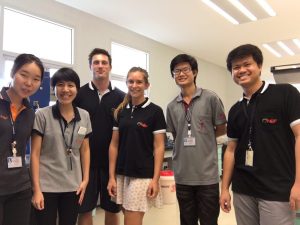Lead Investigators: Prof. Mark Smales, Dr Lalintip Hocharoen, Prof. Colin Robinson
 Biopharmaceuticals are protein drugs that are used to treat an increasingly wide range of serious diseases, to the extent that half of all new drugs are predicted to be ‘biologics’ by 2020. They are usually produced in bacterial or animal cells, which makes them difficult and expensive to produce. Thailand currently imports all of its biopharmaceuticals, at great cost, and fewer than 2% of the population have access to anti-cancer and anti-inflammatory drugs that are routinely used in high-income countries.
Biopharmaceuticals are protein drugs that are used to treat an increasingly wide range of serious diseases, to the extent that half of all new drugs are predicted to be ‘biologics’ by 2020. They are usually produced in bacterial or animal cells, which makes them difficult and expensive to produce. Thailand currently imports all of its biopharmaceuticals, at great cost, and fewer than 2% of the population have access to anti-cancer and anti-inflammatory drugs that are routinely used in high-income countries.

Chinese hamster ovary (CHO) and E. coli cells are the main production hosts for biopharmaceuticals. The CHO platform is the standard expression system required when complex proteins requiring post-translation modifications (e.g. glycosylation) are necessary for biological activity. This project will exploit advances in the Smales lab on CHO cell systems alongside well established approaches to cell line engineering, vector construction and media development to deliver platforms for cGMP-compliant production of protein biologics in Thailand. We will deliver CHO cell lines, vector systems, media and feeding strategies for the production of target molecules, fully ready for commerical application. In parallel, we will apply E. coli-based systems for the production of simpler biopharmaceuticals, using new approaches pioneered by the Robinson group.
